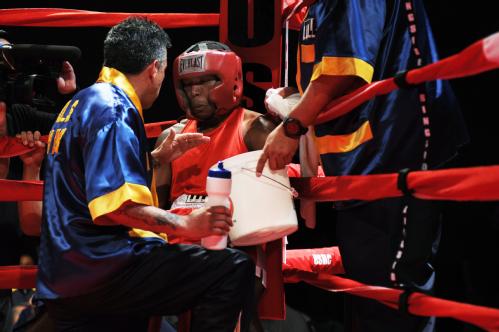Linguistics in Sports


The way ahead is understanding the marginal gains of the language game

Dr Kieran File, Applied Linguistics, Warwick

Sport is all about teamwork, and teamwork is all about communication. Yet when we think about elite-level sports, we still focus primarily on the physical – the distances covered, the shots played, the tackles made. My work seeks to shine a light on the critical role that language can play to help athletes and teams get an edge on the competition.
I got into linguistics through language teaching. Having always been interested in sports, I struck on the idea of building a syllabus that would help foreign professional athletes learn how to use English when speaking to the media in high-profile, high-pressure encounters. But I soon realised that it wasn’t just non-native speakers who found conversations with journalists challenging or stressful. In fact, it became clear that a lot of athletes and coaches could benefit from more sophisticated education or training in this area.
Some people only think about language in elite sports when something goes wrong. A player criticises the manager and causes a social media storm.
Teammates blame each other for a conceded goal. A coach loses the confidence of the fans after an ill-conceived interview. Suddenly, who said what to whom – and how – is front and centre. But the thing is, it always should be.
My PhD at Victoria University of Wellington came about when the Ladies Professional Golf Association announced that from 2009, all players would be required to speak English without a translator. That attracted the language teacher in me, but it also inspired me to research the often cliche-filled post-match interviews that happen all the time across every kind of sport.
I looked at the patterns across fields, regions, results and player types; it was really fascinating and provided an entry point to the career I have today.
At Warwick, my focus has shifted somewhat onto how athletes, coaches and managers can build team culture, manage relationships and facilitate greater teamwork through their communication choices. The way a team communicates can tell you a lot about, for example, power dynamics and their shared beliefs about how power should work in a sports team. This can be revealed by something as rudimentary as who is and isn’t doing the talking; is someone domineering in the dressing room, and is that a positive?
When I work with professional sports teams, I help them consider the impact of their ritual language choices. Every team is different, and language is so incredibly all-encompassing, so there’s no one-size-fits-all way of using language in sports teams. I suppose that nuance has been the biggest challenge in my career so far, and I think I’ll still be appreciating all the many ways language plays a role for the rest of my life.
But I have to be honest, I’m a very lucky man I’m fortunate enough to have been trusted again and again to go into team settings, from working with professional rugby teams in New Zealand to reviewing how coaches talk to England Boxing athletes between rounds. It’s always an exciting experience to go behind the scenes.
I’ve recently been working with the Williams Racing Formula One team on a study to understand how engineers, mechanics, management and drivers communicate with each other in the high-stakes world of racing events. The goal is obviously to help the team find an advantage over its rivals – because at this level, marginal gains are the name of the game. But I also think learning about how this kind of multi-party communication and decision making works can teach us a lot about humans can use language strategically when under pressure.
It’s a project all about language and teamwork, and it’s actually all thanks to the ethos of teamwork here at Warwick. One minute, I was talking to Oliver Walmsley, the University’s Director of Business Relations, about how much I’d love to work with an F1 team; the next, he’d set up a meeting with one of his connections at Williams. You can just tell that innovative and groundbreaking research is really valued here; it’s one of the reasons I chose to join Warwick when I moved to the UK in 2014.
Now, I think the sporting world is slowly opening its eyes to the power of language. Yet as language and team cultures continue to evolve, there will always be new things we can learn.
appliedlinguistics
